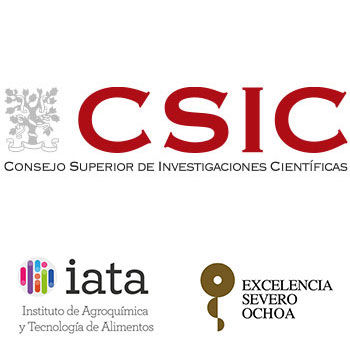
The National Research Council (CNR) is the largest public research institution in Italy, comprising more than 8.500 employees. The scientific network is organised in 88 Research Institutes, spread across the country and belonging to 7 Departments. Two Institutes are involved in the FEED proposal: the Institute of Agricultural Biology and Biotechnology (IBBA) > and the Institute of Polymers, Composites and Biomaterials (IPCB) >. IBBA has solid experience in the study of secondary metabolites, in the extraction of bioactive compounds from different plant matrices and in the development of experimental methods for their biochemical characterization. IBBA has solid experience also in studying the effect of diet in health and disease, in particular in determining the gut microbiota profiles in humans and animal models. IPCB research activities converge in three main subjects: Advanced Materials for energy, packaging; Health and Nanomedicine; Green Chemistry and Sustainability with focus on biodegradable and biobased polymers, recycling and eco-sustainable additives and materials. In detail, the units involved have competences in the processing of sustainable polymers and additives, understanding of the aspects which rule the nano structuring of coatings, preparation of substrates and definition of deposition techniques to address the design and realization of active packaging based on biobased coatings.
Role in the project: Analysing Gut microbial communities and relative metabolites in humans and in animal models. Secondary metabolism studies and biochemical characterization of extracts from several plant matrices. Nutraceutical characterization of foods, through the analysis of antioxidant, anti-inflammatory, anti-aging and anti-cancer properties. Sustainable polymer formulation and processing, composite materials and polymer-particle interfaces.
CREA is the main Italian research organization dedicated to agri-food chains, supervised by the Italian Ministry of agriculture, food sovereignty and forests. Scientific expertise ranges from the agricultural, livestock, fisheries, forestry, agroindustrial, and nutritional sectors to the socioeconomic sphere. CREA is organized in 12 research centres (6 related to specific supply chains and 6 dedicated to horizontal topics) which are forming a capillary network of structures throughout the country.
Project FEED sees the participation of the Research Centre for Engineering and Agro-Food Processing (CREA-IT). CREA-IT carries out research activity in the field of agro-industrial and food processing, especially on fruit and vegetables, through studies on technological innovation and product quality, with a view to an integrated and sustainable supply chain. CREA-IT deals with the metabolic and sensory characterization of both fresh and processed agro-food products along the supply chain, processing optimization through traditional and innovative technologies, shelf-life studies for quality improvement, development of new products, and recovery of waste and by-products.
Role in the project: Biochemical characterization of agro-food products along the supply-chain, particularly focusing on bioactive compounds and antioxidant potential of plant extracts. Food processing and shelf-life studies for quality improvement.
Founded in 1998, Consorzio Italbiotec is the first Italian leading non-profit organization in the industrial biotechnology sector, bringing together 28 Italian universities and research institutions, the National Research Council, and over 50 companies and start-ups. Italbiotec carries out advanced, basic and applied research activities, as well as providing business development, innovation management, scientific dissemination and post-graduate higher education services for companies and professionals in the biotechnology sector
Role in the project: Evaluation of the environmental and social impacts of the model through Life Cycle Assessment; Communication and dissemination activities.
The CSIC (Spanish National Research Council) is Spain’s largest public research institution and ranks third among Europe’s largest research organisations. The CSIC is attached to the Spanish Ministry of Science, Innovation and Universities through the State Secretariat for Research, Development and Innovation, and plays a key role in scientific and technological policy in Spain and worldwide. Development and Innovation plays a key role in scientific and technological policy in Spain and worldwide. CSIC has 4 main missions: 1) to foster multidisciplinary scientific and technological research; 2) Knowledge transfer to industry and society; 3) Education and training of scientific and technical staff; and, 4) Promotion of Technology Based Companies. CSIC has 120 Institutes spread across the country and covering different areas of Science and Technology. Within them, the main food science institutes, IATA-CSIC, is involved in this proposal.
Role in the project: Molecular analysis and evaluation of health effects of beneficial bacteria and probiotics, the microbial-host interactions, microbiome and its role in human health and diseases.
AIJU is the European Technological Institute specializing in children's products. Our mission is to assist throughout all the processes involved in creating new products based on consumer insights and bringing them to the market. The department involved in the proposal is the User & consumer research department and their expertise is the analysis of end-user behavior, pedagogic & therapeutic questions, design of didactic materials, sociological & market studies, product validation with end-users in different countries.
Role in the project: Studies of consumer behaviour/acceptance and the development of non-formal educational material. Assessment of the user requirements and consumer acceptance of the developed prototypes Developing games/toys for raising awareness of the Mediterranean diet benefits.









